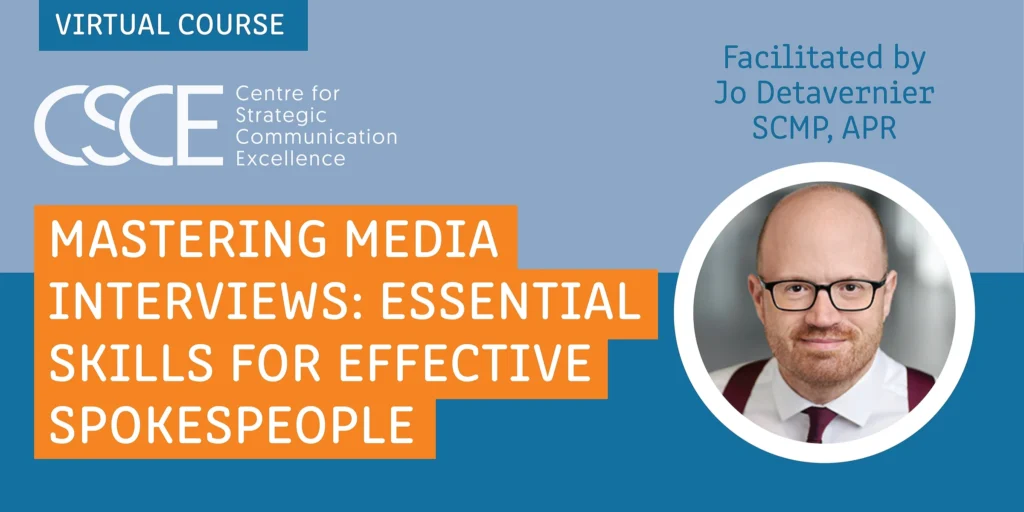You’re solid on paper—and even better in practice. But let’s talk about what makes a Chief Communication Officer say, “That’s who I want on my team.”
Every CCO or communication hiring leader has a shortlist of qualities they look for when building a team—and it’s rarely just about technical skill.
It’s about who they trust during big and small moments. Who brings clarity in complexity. Who elevates the work without making it about themselves. Across hundreds of hiring conversations, I’ve had the privilege of seeing what separates qualified candidates from truly indispensable ones. And I’m sure it’s no surprise that many of these qualities are not explicitly mentioned in job descriptions.
Strategic vs. Tactical Thinking: Know the Why Behind the What
You can hold a tactical role and still think strategically. In fact, the most valued communication professionals at every level understand how their work connects to broader business goals. Tactics execute the job—but strategy aligns it to something bigger.
If you’re developing talking points, how do they enable change or strengthen reputation? If you’re leading a function, how are you linking communication strategy to organizational priorities, values, or transformation?
CCOs pay attention to how you talk about your role. They’re not listening for someone who just lists tasks; they’re drawn to someone who contributes with clarity and business impact. And not just clarity in hindsight—they’re looking for people who are invited into the conversation early, because they’ve earned the trust to think with the business, not just execute on its behalf.
Curiosity That Moves
Yes, curiosity is essential. But it’s not about collecting knowledge for knowledge’s sake. How are you applying what you’ve discovered?
The communication professionals that leaders want on their team are the ones who ask sharp questions and chase down meaningful answers. They keep tabs on industry shifts, explore new tools and channels, and always want to understand the “why” behind the change. They’re not waiting for the next training session—they’re already testing and learning. That kind of active curiosity stands out.
Ability to See Across Silos and Around Corners
Strong communication professionals don’t just deliver messages. They connect dots. They pick up patterns in the organization, flag risks before they escalate, and influence without dominating.
When you can understand how one team’s project affects five others—or how external headlines might shape internal morale—you become someone who adds strategic value across the board. CCOs notice professionals who think broadly and move fluidly across boundaries. Because when you understand the entire business—not just your lane—you earn your way into the right rooms, at the right moments.
Interpersonal Agility
This isn’t just about being personable or kind. You may call this emotional intelligence, but another way to describe interpersonal agility is how you manage up, mentor down, respond under pressure, and adapt to personalities and power dynamics.
It also means knowing how to listen—really listen—to what’s being said (and what isn’t), staying calm in complexity, reading the room, and adjusting accordingly. Whether it’s presenting to the C-suite or coaching a team through change, interpersonal agility is the skill that makes everything else land.
It also looks like clarity in communication; removing jargon, choosing candor, and using language that resonates with the intended audiences. Leaders notice the communication professionals who say hard things, simply and respectfully, even when it’s uncomfortable.
Relationship Building as Strategy
Communication professionals who build strong relationships with business partners across the organization aren’t just more effective, they’re the ones leaders rely on when stakes are high. If someone says, “I won’t make a move without you,” you’ve hit the mark. That kind of trust isn’t accidental — it’s earned through presence, candor, and credibility over time.
It starts with deep listening, grows through plainspoken communication, and solidifies in those moments when you hold up the mirror, reflecting what’s working, what isn’t, and how it will land with employees. The more clarity and truth you bring to the table, the more likely it is that you’ll be invited to it early and often.
Business Literacy (Non-Negotiable)
You don’t need an MBA to be taken seriously as a communication professional. But you do need to understand the business. Period.
That means knowing what drives revenue, where risk lives, how decisions are made, and what stakeholders care about. The candidates who stand out aren’t just good writers or campaign planners—they’re sharp thinkers who speak the language of performance. They ask smart questions, build better partnerships, and operate with the kind of business acumen that earns respect at every level.
If this is a muscle you haven’t used much, start small: listen to earnings calls, attend operational briefings, or simply ask your leader, “What’s the most important metric I should understand this quarter—and how can we help move it?”
The Ability to Prioritize What Matters
In comms, everything can feel urgent. But high-value professionals know how to pause, assess, and make smart choices about where their energy goes.
Leaders look for team members who don’t just do more—they do what matters. That means asking the right questions, balancing short-term execution with long-term positioning, and occasionally saying “no” to the noise so you can say “yes” to the things that have impact.
Prioritization isn’t about having less on your plate; it’s about making better use of your focus. And in fast-moving environments, that’s not just a productivity skill—it’s a leadership signal.
And of Course: Judgment
Whether you are early in your career or a seasoned leader, the most trusted people in any communication function are the ones with consistently good judgment.
Not flashy. Not perfect. Just solid, thoughtful instincts earned through experience and self-awareness. Judgment is knowing when to escalate, when to sit tight, when to simplify, and when to go deeper. CCOs rely on it. Your teammates depend on it. And it’s the thread that connects all the other qualities listed here.
And sometimes, good judgment means challenging the status quo. Asking “what if we said this out loud?” or “what happens if we strip away all the unnecessary polish?” Editing isn’t just about word count—it’s about courage.
The Bottom Line
When CCOs build out their teams, they’re not just hiring skillsets. They’re hiring judgment. Maturity. Awareness. Relationship builders. People who understand the job behind the job.
So, if you want to be the person they trust in the room—the one they turn to in the messiest moments—it’s not about having a perfect resume. It’s about showing up as a communication professional who knows how to move work forward with confidence, clarity, and care.
That’s the communication professional every leader wants to hire.






